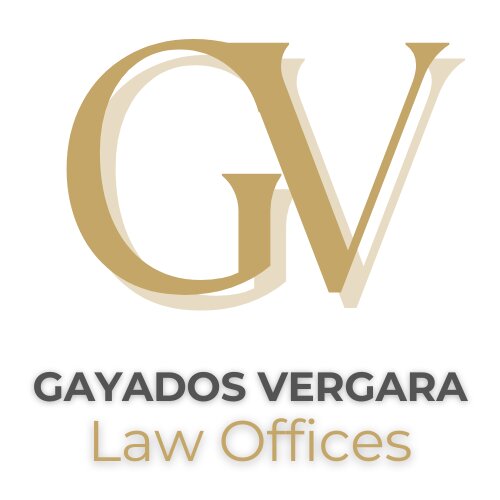Best Wage & Hour Lawyers in Philippines
Share your needs with us, get contacted by law firms.
Free. Takes 2 min.
Or refine your search by selecting a city:
List of the best lawyers in Philippines

Dagsaan Monterde Castillo Law and Notary Public (DMC LAW)
15 minutes Free ConsultationAbout Wage & Hour Law in Philippines
The Wage & Hour Law in the Philippines is governed by various legal statutes, primarily by the Philippine Labor Code. These laws regulate the standards for minimum wage, working hours, overtime, night shifts, rest periods, and working conditions. The laws aim to ensure fair and equitable compensation for workers, protect their rights, and promote decent work. Compliance is essential for employers, as non-adherence may result in legal repercussions, fines, and penalties.
Why You May Need a Lawyer
There are several situations where an individual or a company might need legal assistance concerning Wage & Hour laws in the Philippines:
- Disputes over wage payments or deductions made by the employer.
- Issues related to unpaid overtime or incorrect overtime pay calculations.
- Concerns regarding unfair labor practices, such as forced overtime or non-compliance with working hour regulations.
- Cases involving unjust terminations linked to wage disputes.
- Addressing non-payment of benefits, such as holiday pay and night shift differentials.
- Clarifications needed on legal obligations for employers, especially for businesses unfamiliar with local labor laws.
- Representation in labor disputes before the Department of Labor and Employment (DOLE) or courts.
Local Laws Overview
Some of the key aspects of local laws relevant to Wage & Hour in the Philippines include:
- Minimum Wage: Mandated by the Regional Tripartite Wages and Productivity Board. Rates vary depending on the region, industry, and size of the enterprise.
- Standard Work Hours: Typically 8 hours per day or 48 hours per week. Any work beyond these limits requires overtime compensation.
- Overtime Pay: Employers must pay 25% premium on regular wage for overtime and 30% for holiday overtime.
- Rest Day Pay: A premium of at least 30% is mandatory for work done on a scheduled rest day.
- Night Shift Differential: An additional 10% wage premium is required for work performed between 10 PM and 6 AM.
- Holiday Pay: Workers are entitled to 100% of their wage even if no work is done on a regular holiday.
Frequently Asked Questions
What is the current minimum wage in the Philippines?
The minimum wage varies by region and is determined by the Regional Tripartite Wages and Productivity Boards. It is essential to check the latest rates applicable in your specific area.
How is overtime pay calculated?
Overtime pay is calculated at 25% above the regular hourly rate. On special days or holidays, the rate is increased to 30% above the regular hourly rate.
What constitutes a workweek and maximum allowable working hours?
A standard workweek consists of 6 days at 8 hours per day. Total allowable hours, without triggering overtime, is 48 hours per week.
Are employers required to compensate for rest days?
Yes, work performed on a rest day requires a premium of at least 30% in addition to the standard daily rate.
What are night shift differentials?
Employees working between 10 PM and 6 AM are entitled to at least 10% additional pay over their regular wage.
When is holiday pay applicable?
Holiday pay applies to all regular holidays proclaimed by the government, entitling employees to 100% of their daily wage.
How is "no work, no pay" policy interpreted?
The "no work, no pay" principle generally applies except in cases where the employee is Ready, Able, and Willing to work but is unable to work due to the employer's fault.
What constitutes illegal wage deductions?
Aside from those authorized by law or the employee themselves, any other wage deductions are considered illegal.
What should employees do when wages are illegally deducted?
Employees should file a complaint with the DOLE for investigation and possibly seek legal counsel to address these violations.
How can disputes over wage and hour issues be resolved?
Disputes are typically resolved through mediation, arbitration, or through formal complaints filed with the DOLE or relevant labor courts.
Additional Resources
For those seeking further guidance, the following resources may be helpful:
- The Department of Labor and Employment (DOLE) is a primary source for labor-related queries and complaints.
- Regional Tripartite Wages and Productivity Boards for specific minimum wage details.
- Legal Aid Clinics and Labor Unions provide pro bono or reduced-cost services for those needing legal representation.
Next Steps
If you require legal assistance concerning Wage & Hour issues in the Philippines, consider the following steps:
- Document all relevant facts and communications concerning your wage or hour issues.
- Contact the nearest DOLE office to seek guidance or file a complaint, as they may mediate between you and your employer.
- Consult with a lawyer specializing in labor law to explore your legal options and representation.
- Reach out to local labor unions or non-governmental organizations that can provide support and advice.
Lawzana helps you find the best lawyers and law firms in Philippines through a curated and pre-screened list of qualified legal professionals. Our platform offers rankings and detailed profiles of attorneys and law firms, allowing you to compare based on practice areas, including Wage & Hour, experience, and client feedback.
Each profile includes a description of the firm's areas of practice, client reviews, team members and partners, year of establishment, spoken languages, office locations, contact information, social media presence, and any published articles or resources. Most firms on our platform speak English and are experienced in both local and international legal matters.
Get a quote from top-rated law firms in Philippines — quickly, securely, and without unnecessary hassle.
Disclaimer:
The information provided on this page is for general informational purposes only and does not constitute legal advice. While we strive to ensure the accuracy and relevance of the content, legal information may change over time, and interpretations of the law can vary. You should always consult with a qualified legal professional for advice specific to your situation.
We disclaim all liability for actions taken or not taken based on the content of this page. If you believe any information is incorrect or outdated, please contact us, and we will review and update it where appropriate.
Browse wage & hour law firms by city in Philippines
Refine your search by selecting a city.
















